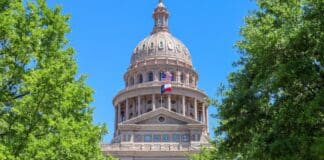President Joe Biden and First Lady Jill Biden delivered an unmistakable snub to Vice President Kamala Harris and Second Gentleman Doug Emhoff at the Kennedy Center, pointedly refusing to acknowledge them during a public appearance. The incident, marked by a visible avoidance of eye contact and interaction, underscored simmering tensions within the Democratic leadership.
As the Bidens entered to a standing ovation, Kamala Harris and Doug Emhoff rose, applauded, and looked expectantly toward the president and first lady, seemingly waiting for a friendly gesture. Instead, the Bidens deliberately turned away. Jill Biden notably swiveled 90 degrees with such haste that it appeared she was actively avoiding Harris. For nearly a minute, the Bidens greeted others in the room, but conspicuously ignored Harris and Emhoff, even as Joe Biden waved to someone directly behind them, bypassing any acknowledgment of his vice president.
This frosty exchange came just hours after Jill Biden was seen sharing a cordial moment with President-elect Donald Trump at the reopening of Notre Dame Cathedral in Paris. The juxtaposition was striking and fueled speculation about the depth of the rift between the Bidens and Harris.
The public snub is the latest fallout from the Democratic primary drama, where Joe Biden won the nomination only to see Kamala Harris and House Speaker Nancy Pelosi play roles in his political downfall. Harris, whom Biden elevated to the vice presidency despite her lack of qualifications and prior criticism of him, ultimately failed to secure a victory after replacing him as the 2024 nominee.
Biden’s disappointment and frustration are understandable from his perspective. He views his presidency as a bulwark against Trump, and now, thanks to what he perceives as betrayal from Harris and others, Trump is poised to return to the White House stronger than ever. In Biden’s mind, Harris’s loss validated his belief that he was the Democrats’ best hope for defeating Trump.
This symbolic snub at the Kennedy Center highlights the internal fractures within the Democratic Party, with finger-pointing and recriminations likely to persist long after the dust settles on the 2024 election.





